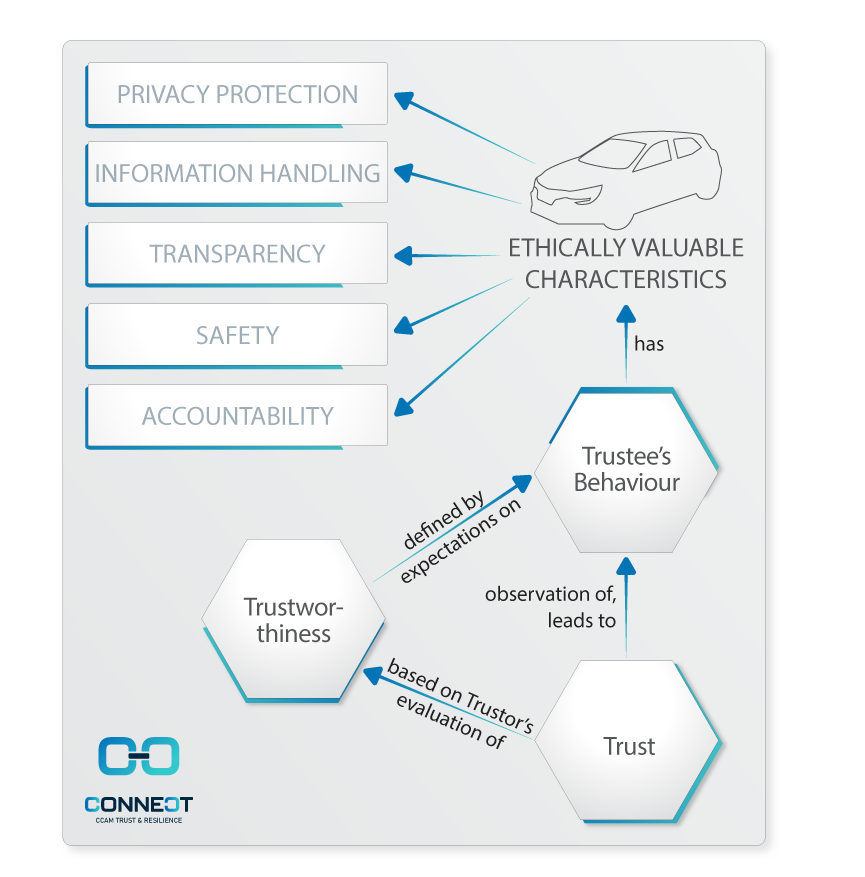Autonomous vehicles are set to profoundly impact our societies, making trustworthiness and trust essential values in their development and deployment. The EU research project CONNECT aims to assess and enhance trust in connected, cooperative, and automated mobility (CCAM) systems. By exploring mechanisms for increased trust assurances, CONNECT seeks to define trustworthiness and trust in the context of autonomous technologies – the focus of the second CONNECT Fact Sheet: Trustworthiness.
Trustworthiness involves the ability of a trustee to fulfill the entrusted task and respond to the trust placed in them by the trustor. It encompasses competence (technical performance) and integrity (alignment with trustor’s goals). For autonomous systems, trustworthiness depends on appropriate contextual conditions, reasonable expectations, and the ethical concerns and values at play.
Designing trustworthy autonomous vehicle systems requires addressing key ethical principles. Privacy protection, human oversight, transparency, accountability, fairness, safety, and non-discrimination are among the ethical values that shape the characteristics and requirements of trustworthy AV systems.
CONNECT aims to provide a refined list of essential requirements and characteristics for trustworthy CCAM AV systems and their components. Through rigorous research, the project seeks to develop a methodology to evaluate trustworthiness in existing and future mobility systems. By doing so, CONNECT contributes to the design of trustworthy autonomous mobility systems.
Trustworthiness and trust are vital for the successful development and deployment of autonomous vehicles. The CONNECT project explores these concepts, aligning them with key ethical principles. By defining trustworthiness and trust, CONNECT aims to build a foundation for the design and evaluation of trustworthy autonomous mobility systems. The project paves the way for safe, reliable, and ethically sound autonomous vehicles that can earn the trust of individuals and society as a whole.
Authors: Chirag Arora, Adam Henschke (UTWENTE)
